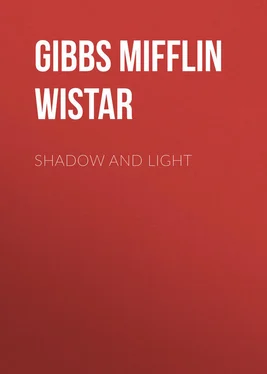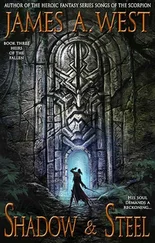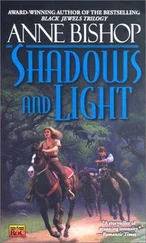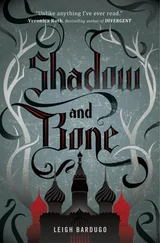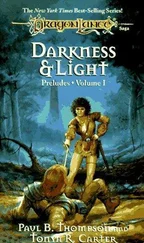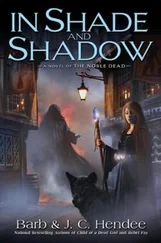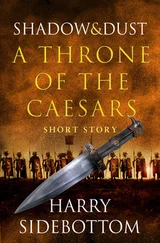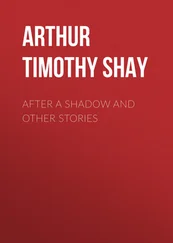Mifflin Gibbs - Shadow and Light
Здесь есть возможность читать онлайн «Mifflin Gibbs - Shadow and Light» — ознакомительный отрывок электронной книги совершенно бесплатно, а после прочтения отрывка купить полную версию. В некоторых случаях можно слушать аудио, скачать через торрент в формате fb2 и присутствует краткое содержание. Жанр: foreign_antique, foreign_prose, на английском языке. Описание произведения, (предисловие) а так же отзывы посетителей доступны на портале библиотеки ЛибКат.
- Название:Shadow and Light
- Автор:
- Жанр:
- Год:неизвестен
- ISBN:нет данных
- Рейтинг книги:4 / 5. Голосов: 1
-
Избранное:Добавить в избранное
- Отзывы:
-
Ваша оценка:
- 80
- 1
- 2
- 3
- 4
- 5
Shadow and Light: краткое содержание, описание и аннотация
Предлагаем к чтению аннотацию, описание, краткое содержание или предисловие (зависит от того, что написал сам автор книги «Shadow and Light»). Если вы не нашли необходимую информацию о книге — напишите в комментариях, мы постараемся отыскать её.
Shadow and Light — читать онлайн ознакомительный отрывок
Ниже представлен текст книги, разбитый по страницам. Система сохранения места последней прочитанной страницы, позволяет с удобством читать онлайн бесплатно книгу «Shadow and Light», без необходимости каждый раз заново искать на чём Вы остановились. Поставьте закладку, и сможете в любой момент перейти на страницу, на которой закончили чтение.
Интервал:
Закладка:
When Daniel O'Connell, Ireland's statesman and philanthropist, was approached in Parliament by West India planters with promises of support for measures for the relief of Ireland if he would vote in the interest of slavery in British colonies, he said: "'Tis true, gentlemen, that I represent a poor constituency – God only knows how poor; but may calamity and affliction overtake me if ever I, to help Ireland, vote to enslave the Negro." A noble utterance! Unlike the Northern representatives sent to Congress, who "bent the pliant, servile knee that thrift might follow fawning." What wonder our race was keenly alive to the situation? The hour had arrived – was the man there?
For Abraham Lincoln impartial history will answer "Nor memory lose, nor time impair" his nobility of character for humanity and patriotism that will ever ennoble and inspire. Mr. Lincoln was slow to believe that the rebellion would assume the proportions that it did, but he placed himself squarely on the issue in his inaugural address: "That he should, to the extent of his ability, take care that the laws of the nation be faithfully executed in all the States; that in doing it there would be no bloodshed unless it was forced upon the national authority." His patriotism and goodness welling up as he said: "We are not enemies, but friends, though we may have strained, it must not break our bonds of affection. The mystic chords of memory, stretching from every battlefield and hearthstone, will yet swell the chorus of the Union when again touched by the better angels of our nature."
"But the die was cast;
Ruthless rapine righteous hope defied."
The necessity for calling the nation to arms was imminent on the 15th of April, 1861; the call for 75,000 men rang like a trumpet blast, startling the most apathetic. The response from the Northern and portions of the Southern States was hearty and prompt. The battle at Bull Run dispelled the President's idea that the war was to be of short duration. Defeat followed defeat of the national forces; weeping and wailing went up from many firesides for husbands and sons who had laid down on Southern battlefields to rest. The great North, looking up for succor, saw the "national banner drooping from the flagstaff, heavy with blood," and typical of the stripes of the slave. For 200 years the incense of his prayers and tears had ascended. Now from every booming gun there seemed the voice of God, "Let my people go" —
"They see Him in watch fires
Of a hundred circling camps;
They read His righteous sentence
By the dim and flaring lamps."
The nation had come slowly but firmly up to the duty and necessity of emancipation. Mr. Lincoln, who was now in accord with Garrison, Phillips, Douglass, and their adherents, had counseled them to continue urging the people to this demand, now pressing as a military necessity. The 1st of January, 1863, being the maturity of the proclamation, lifted 4,000,000 of human beings from chattels to freemen, a grateful, praying people. Throughout the North and wherever possible in the South the colored people, on the night of December 31, assembled in their churches for thanksgiving. On their knees in silence – a silence intense with suppressed emotion – they awaited the stroke of the clock. It came, the thrice-welcomed harbinger of freedom, and as it tolled on, and on, the knell of slavery, pent-up joy could no longer be restrained. "Praise God, from whom all blessings flow," from a million voices, floated upward on midnight air. While some shouted "Hallelujah," others, with folded arms, stood mute and fixed as statuary, while "Tears of joy like summer raindrops pierced by sunbeams" fell.
When Robespierre and Danton disenthralled France, we learn that the guillotine bathed in blood was the emblem of their transition state, from serfs to freemen. With the Negro were the antithesis of anger, revenge, or despair, that of joy, gratitude, and hope, has been memory's most choice trio.
This master stroke of policy and justice came with telling effect upon the consciousness of the people. It was now in deed and in truth a war for the Union coeval with freedom; every patriot heart beat a responsive echo, and was stirred by a new inspiration to deeds of heroism. Now success followed success; Port Hudson, Vicksburg, Chattanooga, Gettysburg, and the Mississippi bowed in submission to the national power. The record of history affirms subsequent events that during the ensuing twelve months war measures more gigantic than had been witnessed in modern times were inaugurated; how the will of the people to subdue the rebellion crystallized as iron; that General Grant, planting himself before Richmond, said he would "fight it out on that line if it took all summer," and General Sherman's memorable march fifty thousand strong from Atlanta to the sea. General Grant's campaign ended in the surrender of General Lee, and Peace, with its golden pinions, alighted on our national staff.
Abraham Lincoln was again elected President, the people seeming impressed with the wisdom of his quaint phrase that "it was best not to swap horses while crossing a stream." Through all the vicissitudes of his first term he justified the unbounded confidence of the nation, supporting with no laggard hand, cheering and inspiring the citizen soldier with noble example and kindly word. The reconstruction acts, legislation for the enrollment of the colored soldier, and every other measure of enfranchisement received his hearty approval, remarking at one time, with much feeling, that "I hope peace will come to stay, and there will be some black men that can remember that they helped mankind to this great consummation."
Did the colored troops redeem the promise made by their friends when their enlistment was determined? History records exhibitions of bravery and endurance which gave their survivors and descendants a claim as imperishable as eternal justice. Go back to the swamps of the Carolinas, the Savannahs of Florida, the jungles of Arkansas; or on the dark bosom of the Mississippi. Look where you may, the record of their rugged pathway still blossoms with deeds of noble daring, self-abnegation and a holy devotion to the central ideas of the war – the freedom of the slave, a necessity for the salvation of free government.
The reading of commanders' reports bring no blush of shame. At the terrific assault on Fort Hudson, General Banks reported they answered "every expectation; no troops could have been more daring." General Butler tells of his transformation from a war Democrat to a radical. Riding out at early morn to view the battlefield, where a few hours before shot and shell flew thick and fast, skillfully guiding his horse, that hoofs should not profane the sacred dead, he there saw in sad confusion where lay the white and black soldier, who had gone down together. The appeal, though mute, was irresistible. Stopping his horse and raising his hand in the cold, grey light to heaven, said: "May my tongue cleave to the roof of my mouth and my right hand forget its cunning if I ever cease to insist upon equal justice to the colored man." It was at the unequal fight at Milliken's Bend; it was at Forts Wagner and Pillow, at Petersburg and Richmond, the colored troops asked to be assigned the posts of danger, and there before the iron hail of the enemy's musketry "they fell forward as fits a man." In our memory and affections they deserve a fitting place "as those long loved, and but for a season gone."
Slavery, shorn of its power, nurtured revenge. On the 14th day of April, 1865, while sitting with his family at a public exhibition, Abraham Lincoln was assassinated, and the nation was in tears. Never was lamentation so widespread, nor grief so deep; the cabin of the lowly, the lordly mansion of wealth, the byways and highways, gave evidence of a people's sorrow. "Men moved about with clinched teeth and bowed-down heads; women bathed in tears and found relief, while little children asked their mothers why all the people looked so mournful," and we, as we came up out of Egypt, lifted up our voices and wept. Our friend was no more, but intrenched in the hearts of his countrymen as one who did much "to keep the jewel of liberty in the family of nations."
Читать дальшеИнтервал:
Закладка:
Похожие книги на «Shadow and Light»
Представляем Вашему вниманию похожие книги на «Shadow and Light» списком для выбора. Мы отобрали схожую по названию и смыслу литературу в надежде предоставить читателям больше вариантов отыскать новые, интересные, ещё непрочитанные произведения.
Обсуждение, отзывы о книге «Shadow and Light» и просто собственные мнения читателей. Оставьте ваши комментарии, напишите, что Вы думаете о произведении, его смысле или главных героях. Укажите что конкретно понравилось, а что нет, и почему Вы так считаете.
